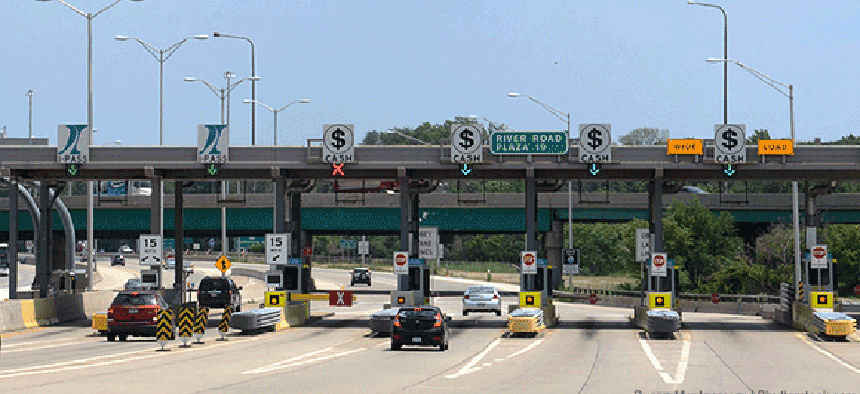Data sharing lets states collaborate on toll collecting


Connecting state and local government leaders
Transportation agencies in Maine, Massachusetts and New Hampshire have developed technology and policies to enforce toll collections across state lines.
Transportation agencies in Maine, Massachusetts and New Hampshire are enforcing toll collections across state lines, a scenario that may spread across the United States as more states look to create ways to work together.
The three entered into the interstate cooperative toll collection agreement three years ago. The states use the same E-ZPass system, so users’ transponders are compatible. Currently 15 states, mostly in the Northeast, use E-ZPass.
“It’s really an issue of fairness,” Chris Waszczuk, administrator of the New Hampshire Department of Transportation’s Bureau of Turnpikes told Stateline. “If we don’t have the capability to collect from the out-of-staters, it is going to be a huge problem.”
Forty-two percent of the revenue collected on New Hampshire’s toll roads comes from out-of-state drivers, Waszczuk said. Many toll agencies – of which there are at least 115 working in 34 states – have facilities that only accept electronic tolls, making it easier for scofflaws.
An interoperable system would not only help states collect money, but it would also comply with the 2012 Moving Ahead for Progress in the 21st Century Act. Also known as Map 21, the law requires all federal-aid highway toll facilities to “implement technologies or business practices that provide for the interoperability of electronic toll collection by Oct. 1, 2016.”One of the hurdles the New England states needed to overcome in order to share data was integrating the tolling information with each state’s billing systems. Not only does each participating state need access to the tag number, it also needs an account number to match.
A second hurdle was data privacy -- determining the amount of data shared and creating rules and regulations to prevent the information from being shared with third parties or collection agencies.
Under the agreement, states apply their own penalties to residents, rather than the penalties from the states where the violations occurred. So, for example, a New Hampshire resident who didn’t pay tolls in Massachusetts would not be able to renew his vehicle’s New Hampshire license plates. A Massachusetts resident who didn’t pay New Hampshire tolls would have his Massachusetts license and registration renewals blocked.
Toll agencies across the country are working on determining what information is needed for developing a universal transponder. The International Bridge, Tunnel and Turnpike Association issued an RFI in January inviting comments on identifying minimum performance requirements for National Toll Protocol devices and for security protocols relating to national transponders.
State agencies across the country also have been aware of the benefits and issue for years. Eight years ago, in 2006, the Washington State Department of Transportation hired Cambridge Systematics to conduct a tolling study to provide recommendations on how to develop its toll facilities. Among its findings the report noted that “achieving interoperability among ETC systems is paramount to the success of any tolling operation. In order for it to be truly effective, interoperability needs be attained both at the local and regional scale.”
One company, GeoToll, is working on creating an app that would allow users to pay tolls via their cellphone anywhere across the country. The solution, still being tested, “combines a smart phone and today’s electronic toll collection (ETC) tag protocols into one device that allows you to use your smart phone as a toll tag anywhere in the United States, in an interoperable manner,” Tim McGuckin, CEO,told Toll Road News.
Still, not every state may be on board with collaboration. South Dakota recently issued a law prohibiting its government from enforcing traffic camera ticket fines, essentially protecting its citizens from being fined by Iowa, most specifically Sioux City, which is on the Iowa-South Dakota border, according to an article in the Muscatine Journal.

NEXT STORY: 10 ways to improve spending transparency




